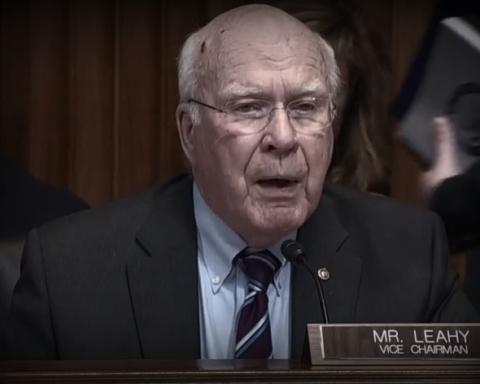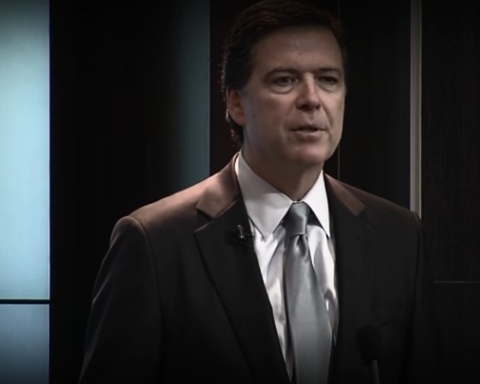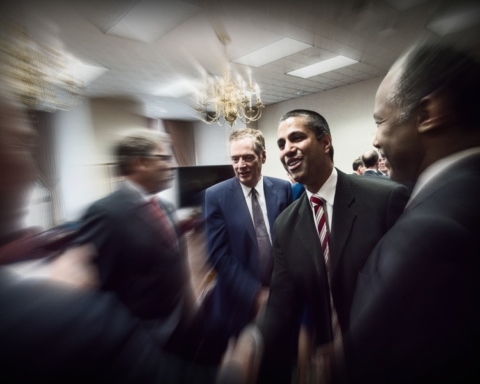The chair of the Federal Communications Commission on Tuesday urged Congress to expand the definition of “lawful intercept” in response to Friday’s Islamic State (ISIL) attacks in Paris.
Tom Wheeler said that “things have moved on” since 1994, when the legislative branch passed the relevant wiretapping statute—the Communications Assistance for Law Enforcement Act (CALEA)–and urged a revisiting of the issue in light of media reports about ISIL communications methods.
“You know, you read in the press that they were using Playstation 4 games to communicate on, which is outside the scope of anything ever considered in CALEA,” Wheeler said. “So there’s probably opportunities to update the ‘lawful intercept’ concept.”
CALEA, as the FCC notes on its website, requires telecoms carriers to “design and modify their equipment, facilities, and services to ensure that they have the necessary surveillance capabilities as communications network technologies evolve.” It was revised in 2007 to include broadband internet traffic and Voice over Internet Protocol (VoIP) services like Skype.
Wired has described CALEA as a law that made “the FBI’s surveillance network possible,” describing it as “mandating backdoors in US telephone switches.” It noted that “[p]rivacy groups and security experts have protested CALEA design mandates from the start.”
Wheeler had been asked by Rep. Joe Barton (R-Texas) if there’s something the FCC could do to censor ISIL websites, saying they’re using the internet “to try to intimidate and beat us psychologically.”
“Isn’t there something we can do under existing law to shut those internet sites down?” he asked, conceding that “they pop up like weeds.”
“I’m not sure our authority extends to saying, to picking and choosing amongst websites, but I do think there are specific things that we can do,” Wheeler responded, launching into his position on re-legislating CALEA mandates.
“One of the issues here is the question of what is a ‘lawful intercept.’ It is something that The Congress can define,” he added.
Reports about ISIL using Playstation 4 to communicate appear to be premature. The Telegraph noted that one of the consoles had turned up in a police raid for suspects with ties to the Paris attacks, and that much of the discussion surrounds comments made days before the Nov. 13 massacre by Belgian Interior Minister Jan Jambon.
“The most difficult communication between these terrorists is via PlayStation 4,” he said on Nov. 10. “It’s very, very difficult for our services—not only Belgian services but international services—to decrypt the communication that is done via PlayStation 4.”
Politico, which widely reported the remarks on Nov. 15, noted that “[i]t’s unclear if the suspects in the attacks used PlayStation as a means of communication.”
The Telegraph pointed out that officials have claimed “attackers communicated with contacts in Syria using encryption tools.” It also noted that “[p]ractically all internet communication services have been, at one time or another, accused of being a network used by terrorists.”





